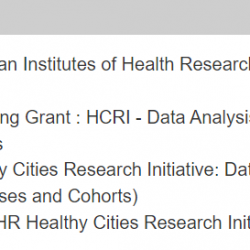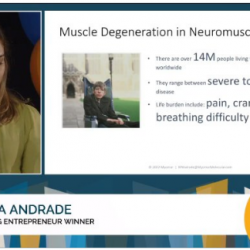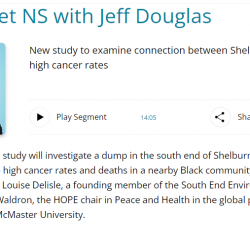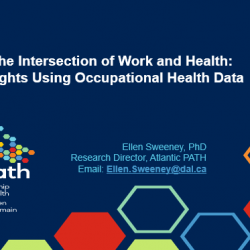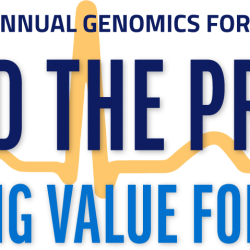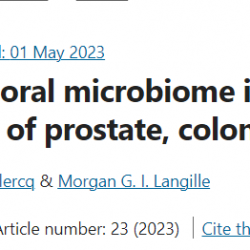CIHR Funding Opportunity — Data Analysis using Existing Databases and Cohorts
CIHR has announced an Operating Grant competition, Data Analysis Using Existing Databases and Cohorts sponsored by the CIHR Healthy Cities Research Initiative. “This HCRI funding opportunity will support research that leverages existing data to improve the health, wellness and health equity of urban populations. CIHR and other funding agencies have invested heavily in the establishment of cohorts, databases, and data platforms. As a result, many high-quality data sets exist that contain a wealth of information and have the potential to answer research questions that go beyond those for which the data were originally collected or for which the data has been used to date. Examples of such resources include but are not limited to data available through Statistics Canada’s Research Data Centres, the Canadian Institute for Health Information, the Canadian Partnership for Tomorrow Project (CanPath) and the Canadian Longitudinal Study on Aging (CLSA), as well as administrative datasets, surveys, large data linkage projects and cohort catalogues that bring together datasets from multiple sources such as the Canadian Urban Environmental Health Research Consortium (CANUE).“* *Please note that CANUE data has been linked to all CanPath participants and is held by the regional cohorts, and other linkages already exist and/or are possible. Funds Available “The total amount available for this funding opportunity is $700,000, enough to fund approximately seven (7) one (1) year grants of up to $100,000 each. This amount may increase if additional funding partners participate.” Deadline: November 8, 2023 Anticipated Notice of Decision: February 28, 2024 Funding Start Date: March 1, 2024 Additional Details: https://www.researchnet-recherchenet.ca/rnr16/vwOpprtntyDtls.do?all=1&masterList=true&next=1&org=CIHR&prog=3891&resultCount=25&sort=program&type=EXACT&view=currentOpps&language=E

